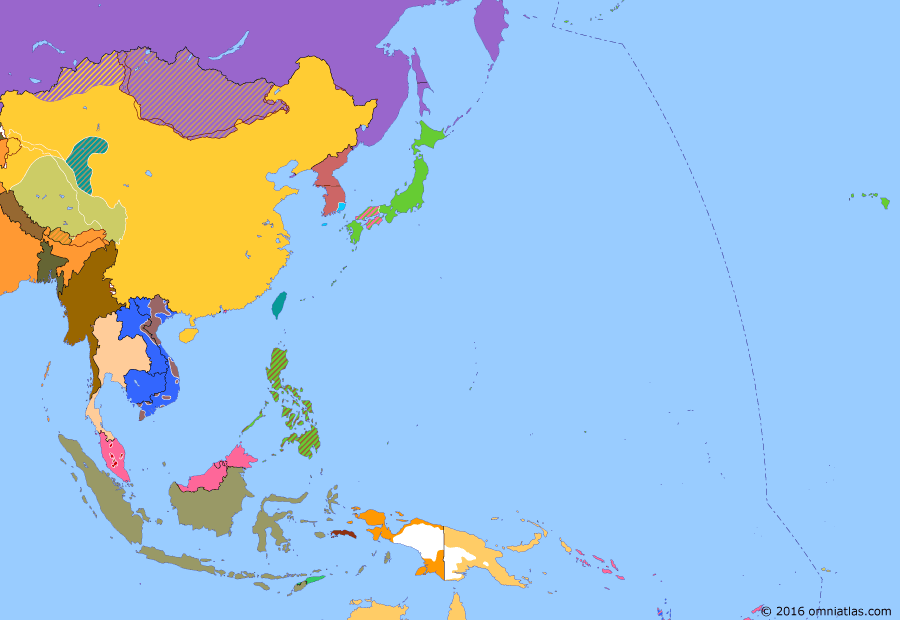Asia Pacific 1950: Outbreak of the Korean War
14 September 1950
14 Sep 1950
Outbreak of the Korean War
14 Sep 1950 Outbreak of the Korean War
24 Nov 1950 UN Offensive in Korea
9 Sep 1951 China in Korea and Tibet
6 May 1954 First Indochina War
28 Mar 1959 China under Mao
16 Sep 1963 Formation of Malaysia
1 Apr 1968 Vietnam War
27 Jan 1973 Paris Peace Accords
2 Dec 1975 Communist Victory in Indochina
5 Mar 1979 Sino-Vietnamese War
The Soviets and Americans had withdrawn from Korea in 1948, leaving it divided between a communist North Korea and a capitalist South Korea. In June 1950, North Korea invaded the South - a move condemned by the recently formed United Nations. Taking advantage of a Soviet boycott over the lack of recognition of the People's Republic of China, the UN unanimously agreed to intervene on behalf of South Korea.
